
Find Help
More Items From Ergsy search
-

Emergency Legal Guidance: Navigating the Impact of Sudden Policy Changes on Families
Relevance: 100%
-
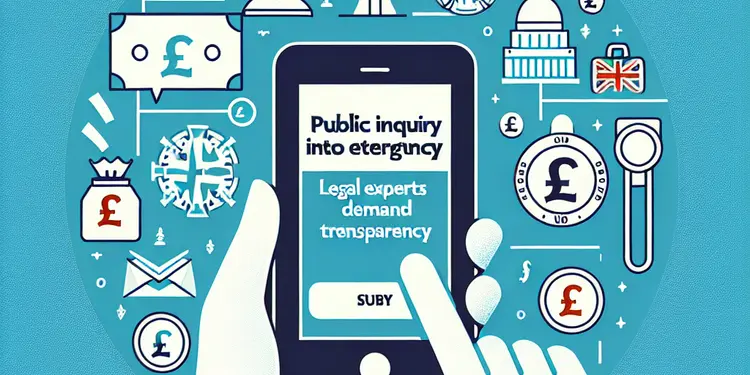
Public Inquiry into States of Emergency: Legal Experts Demand Transparency
Relevance: 43%
-
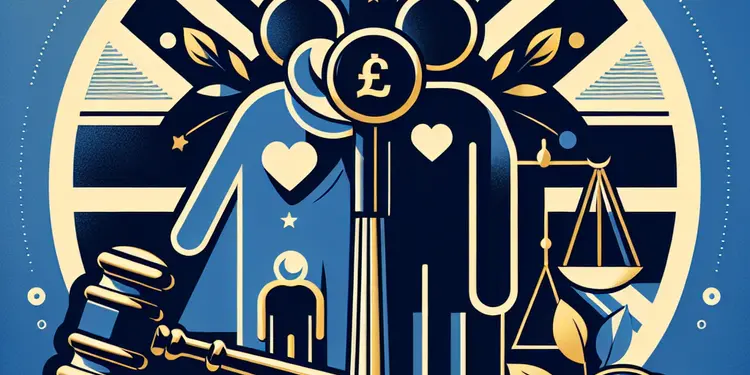
Are there modifications to legal aid access in family court for 2026?
Relevance: 38%
-

What is travel assistance in a holiday insurance policy?
Relevance: 38%
-
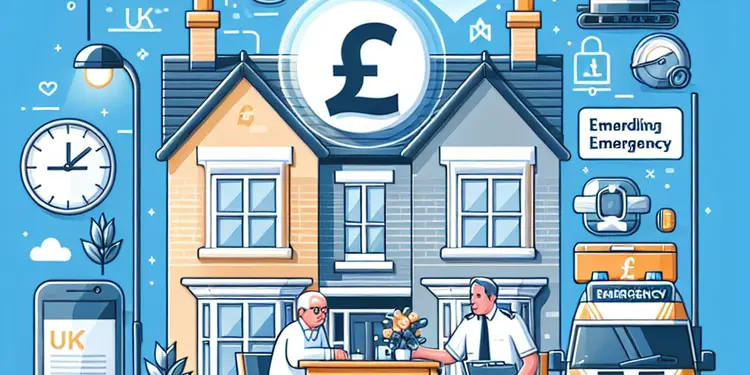
How do live-in caregivers handle emergencies?
Relevance: 35%
-
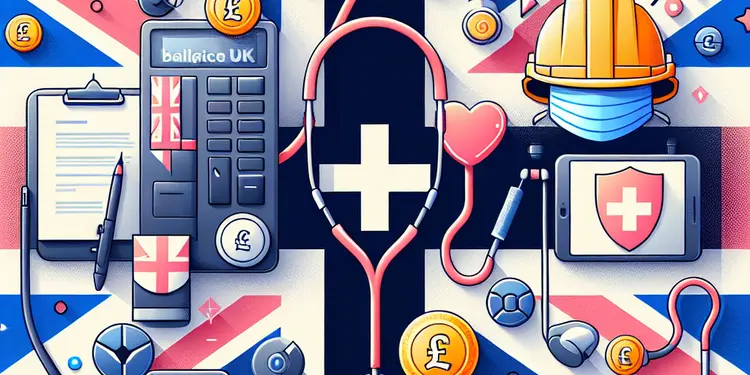
What healthcare policies should support workers be aware of?
Relevance: 34%
-

What should I do if I experience sudden tinnitus?
Relevance: 34%
-

How are emergencies handled in a virtual ward?
Relevance: 33%
-

What if I need emergency assistance while traveling?
Relevance: 32%
-

Understanding Your Rights: Legal Support for Families During Economic Turbulence
Relevance: 32%
-

Are new emerging pathogens a risk for blood safety?
Relevance: 32%
-

Is hypotony a medical emergency?
Relevance: 31%
-

What should I do in case of a medical emergency while in the EU?
Relevance: 30%
-

Can I get an emergency NHS dental appointment?
Relevance: 30%
-

Does the menopause just happen suddenly?
Relevance: 30%
-

How does age affect holiday insurance policies?
Relevance: 29%
-

The Family Court without a Lawyer
Relevance: 29%
-

Upcoming Changes to Parental Leave Policies in the UK
Relevance: 29%
-

Do I need to be a registered patient to get emergency NHS dental care?
Relevance: 29%
-

What changes affect pet policies in rented homes?
Relevance: 29%
-

Can a sudden decrease or increase in followers indicate a hack?
Relevance: 28%
-

Magistrates in the Family Court: A Public Law Case
Relevance: 28%
-
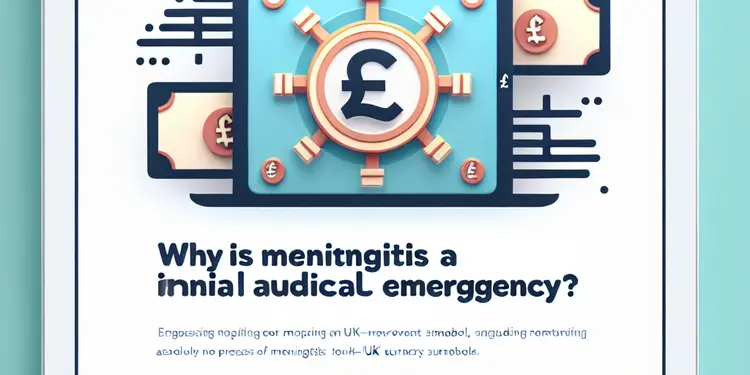
Why is meningitis a medical emergency?
Relevance: 28%
-
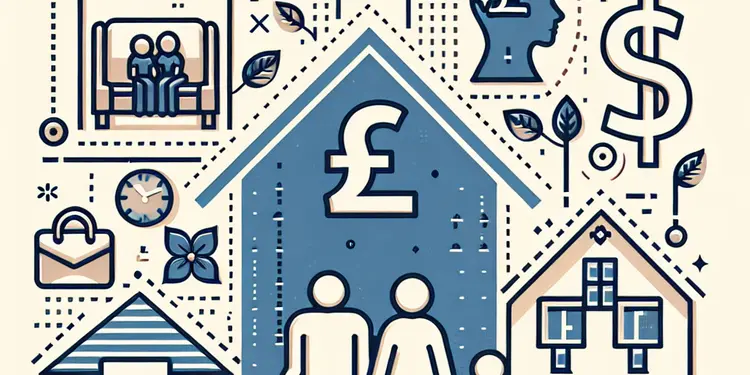
What should families look for in a live-in care agency?
Relevance: 28%
-

Are woodland burials legal in the UK?
Relevance: 28%
-

The Devious Car Insurance Scam Hidden In Your Policy! And How to Deal With it
Relevance: 28%
-
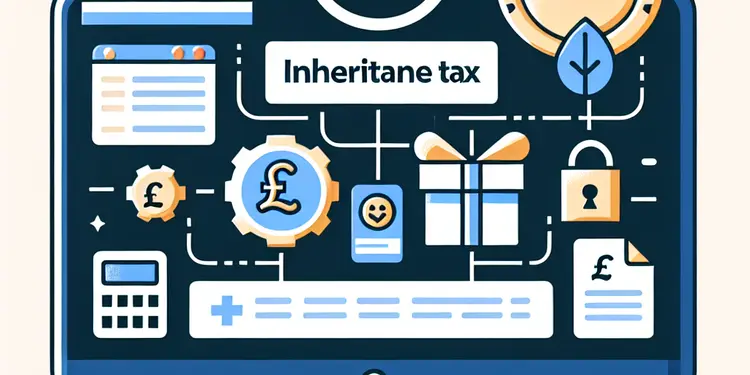
How does inheritance tax affect life insurance policies?
Relevance: 27%
-

How does inheritance tax apply to life insurance policies?
Relevance: 27%
-

Is there any legal recourse for those affected by the housing benefit cuts?
Relevance: 27%
-

Are pre-existing medical conditions covered by holiday insurance policies?
Relevance: 27%
-
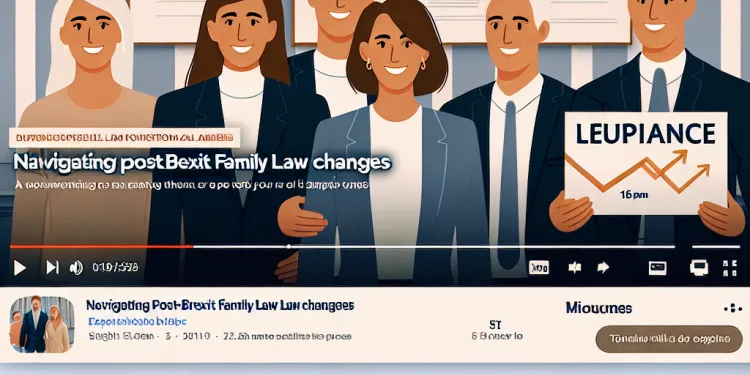
Navigating Post-Brexit Family Law Changes
Relevance: 26%
-

Is it legal to import ketamine?
Relevance: 26%
-

Is ketamine legal?
Relevance: 26%
-
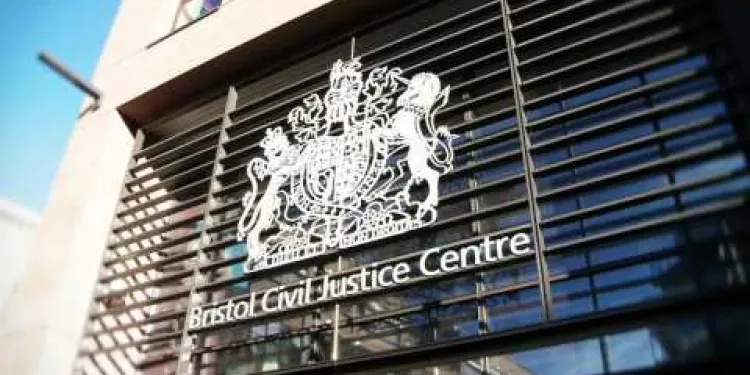
The Family Court without a Lawyer - Video 1 of 3
Relevance: 26%
-

What should I look for in the policy's terms and conditions?
Relevance: 26%
-

How can community helpers access emergency assistance?
Relevance: 26%
-

How are ashes returned to the family?
Relevance: 26%
-

Is cryptocurrency legal?
Relevance: 26%
-

Handling Inheritance Disputes Legally
Relevance: 25%
-

Safe sleeping and reducing the risk of Sudden Infant Death Syndrome (SIDS)
Relevance: 25%
Emergency Legal Guidance: Navigating the Impact of Sudden Policy Changes on Families
Understanding Sudden Policy Changes
In an era where governmental policies can shift rapidly, families in the United Kingdom often find themselves needing to adapt quickly to new legal landscapes. Sudden policy changes can impact various aspects of daily life, including immigration status, housing, welfare benefits, and education. Having access to emergency legal guidance becomes crucial for navigating these changes effectively, ensuring that families can maintain stability and continuity during periods of uncertainty.
Key Areas Affected by Policy Changes
Immigration: Sudden changes in immigration policies can affect the legal status of family members, work rights, and eligibility for public services. Families need immediate legal advice to understand their rights and obligations and to undertake necessary actions such as applications or appeals.
Housing: Alterations in housing benefits or regulations can lead to challenges in maintaining current living arrangements. Legal guidance can help families understand their tenancy rights, obligations, and options available under the new regulations.
Welfare Benefits: Changes in welfare policies can directly impact family finances. Immediate legal support can assist in understanding new eligibility criteria, appealing against decisions, and accessing alternative support systems.
Education: Policy shifts can alter school admission criteria, funding allocations, and special educational needs provisions. Legal advice can help families ensure their children continue to receive appropriate educational opportunities.
Seeking Legal Advice Quickly
When faced with sudden policy changes, the importance of seeking legal advice promptly cannot be overstated. Organizations, such as Citizens Advice, offer free, confidential guidance on a range of issues. Additionally, solicitors specializing in family law, immigration, and social welfare law can provide tailored advice and representation. Online resources and helplines are often available to quickly address urgent concerns.
Preparing for Future Changes
Families can take proactive steps to prepare for potential policy changes. Staying informed through reliable news sources, government websites, and legal advisory groups can help anticipate and understand upcoming shifts. Having key documents organized, such as identification, tenancy agreements, and benefit records, can streamline the process of seeking legal advice and support if needed.
The Importance of Community and Support Networks
Engaging with community support networks, including local community centers, faith-based organizations, and social services, can provide additional resources and support during times of sudden legal changes. These networks often have links to legal aid, advocacy services, and practical assistance for affected families.
In conclusion, while sudden policy changes can create significant challenges for families in the UK, having access to timely legal guidance and support can facilitate smoother transitions and minimize disruptions to family life. Proactive preparation and strong community ties enhance the ability to navigate these challenging periods successfully.
Emergency Legal Help: How to Deal with Sudden Rule Changes for Families
Understanding Rule Changes
Sometimes, the rules in the United Kingdom change quickly. These changes can affect your family a lot. They might change things like where you can live, the benefits you get, or your child's school. It's important for families to get legal help fast. This way, you can cope with the changes and keep things steady at home.
Important Areas Affected by Rule Changes
Immigration: If immigration rules change, it might affect who can stay in the country or what public help you can get. Families need fast legal advice to know what to do and what their rights are.
Housing: Changes in housing rules can make it hard to keep your home. Legal help can explain your rights and what you should do next.
Welfare Benefits: When welfare rules change, it can affect how much money your family gets. Legal advice can help you understand the new rules and how to get the support you need.
Education: New rules can change how children get into schools or what help they get. Legal advice can ensure your child still gets a good education.
Getting Legal Advice Fast
When rules change quickly, it’s very important to get legal help straight away. Places like Citizens Advice can give free and private advice on many issues. You can also talk to lawyers who know about family law and benefits. There are online resources and helplines that can help you right away.
Getting Ready for Future Changes
Families can prepare by keeping up with the news, checking government websites, and talking to legal advisors. Keep important papers like IDs, rental agreements, and benefit records safe and in one place. This makes it easier to get help when rules change.
The Importance of Community and Support Networks
Join community groups like local centers, churches, or social services. They can give extra help and may also connect you with legal aid and support services.
In conclusion, when rules change suddenly, it can be tough for families in the UK. Getting legal help quickly can make things easier. Being prepared and having strong community support can help families handle these changes better.
Frequently Asked Questions
What immediate steps should I take if a sudden policy change affects my family?
Contact a legal professional immediately for advice. Keep documented records of how the policy change affects you and gather all relevant documents.
Where can I find up-to-date information on new legal policies affecting families?
Government websites, legal aid organizations, and news outlets are reliable sources. Always ensure that information is from a trustworthy source.
How can I apply for emergency legal aid in the UK?
Visit the gov.uk website or contact a local legal aid agency to check your eligibility and submit an application.
What are my rights if a policy change threatens my housing situation?
Seek immediate legal counsel. In the UK, there are protections for tenants, and legal advisors can help you understand your rights.
How do I find a solicitor who specializes in family law?
Use the Law Society’s ‘Find a Solicitor’ tool or ask for recommendations from trusted sources.
Can sudden policy changes affect my child’s education?
Yes, they can. Consult with your local education authority to understand the new policy and its impacts.
What should I do if a policy change impacts my immigration status?
Contact an immigration lawyer immediately. They will help you understand your options and the best course of action.
How can I challenge an unfair policy change legally?
You can seek judicial review through the courts if you believe the policy change is unlawful. Consult a legal expert to guide you through the process.
What resources are available for families facing financial hardship due to policy changes?
Look into government assistance programs, local charities, and financial advisory services available to UK residents.
How can I stay informed about my legal rights amidst changing policies?
Regularly review reliable legal websites, attend community meetings, and subscribe to legal newsletters.
Can policy changes affect my access to healthcare services?
Yes, policy changes can impact healthcare access. Contact your healthcare provider for guidance and available alternatives.
What are my rights concerning employment under new policies?
Employment rights in the UK are protected by law. If impacted by policy changes, consult an employment lawyer for advice.
How do I report a policy that I believe is discriminatory?
File a complaint with the Equality and Human Rights Commission (EHRC) and seek legal advice on further actions.
Are there any support groups for families affected by sudden policy changes?
Yes, there are numerous support groups and charities that provide assistance and resources for affected families.
What can I do if my social benefits are reduced due to policy changes?
Consult with a benefits advisor or solicitor to understand your rights and explore options for appeal or additional support.
What should I do right away if a new rule changes things for my family?
Here are some ideas to help you:
- Stay calm. Take a deep breath and do not panic.
- Talk to someone you trust about the changes.
- Make a list of things that are different now.
- Ask for help if you are confused.
- Use pictures or charts to understand the changes.
- Look for easy-to-read information online or in books.
- Remember, it's okay to ask questions.
Talk to a lawyer right away to get help. Write down how the change in rules affects you and keep all important papers.
Where can I learn about new family laws?
Here are some ways you can find out:
- Look on official government websites.
- Visit your local library for books or help from a librarian.
- Ask a lawyer or a legal helper.
You can also use tools to help you understand the information:
- Use online dictionaries for difficult words.
- Ask someone you trust to explain things.
Government websites, groups that help with legal stuff, and news places are good places to find information. Always check that the information comes from a place you can trust.
How can I get emergency legal help in the UK?
Do you need legal help fast? Follow these easy steps:
- Contact a Legal Advisor: Find a lawyer or a legal advisor. They can help you understand what to do.
- Explain Your Situation: Tell them why you need help quickly. They will listen and guide you.
- Get an Application Form: The legal advisor can give you a form to fill in. This form is for asking for emergency legal aid.
- Provide Evidence: You might need to show proof, like letters or documents, explaining why you need help now.
- Submit the Form: Give the filled form and evidence back to the legal advisor. They will send it to the right place.
Here are some tools that can help:
- Read Aloud Apps: These can read the text to you if that’s helpful.
- Dictionary Apps: Use these for words that are hard to understand.
- Ask for Help: You can ask a friend or family member to help you fill in forms.
Go to the gov.uk website. Or you can call a nearby legal aid office. They can help you see if you can get legal help and show you how to apply.
What can I do if rules change and might make me lose my home?
If new rules might make you lose your home, here are some things that can help:
- Talk to someone who knows a lot about housing. They can give you advice.
- Get help from a group that supports people with housing problems.
- Tell your friends and family. They can support you.
- Look for information online or in a library.
- Write down everything that happens. This way, you’ll remember what to do next.
Talk to a lawyer right away. In the UK, there are rules that help people who rent homes. A lawyer can help you learn about these rules and your rights.
How can I find a family law lawyer?
Here are some easy steps to find a lawyer who helps with family issues:
1. **Ask friends and family**: Talk to people you trust. They might know a good lawyer.
2. **Use the internet**: Search for family law lawyers online. Look for good reviews.
3. **Call a legal helpline**: These are phone numbers you can call for advice. They can help you find a lawyer.
4. **Visit your local law center**: Go to a place that gives legal help. They can guide you.
If reading is hard, ask someone to help you with these steps. You can also try using a text-to-speech tool. It can read the words aloud for you.
Use the Law Society's 'Find a Solicitor' tool. You can also ask people you trust to suggest good lawyers.
Can quick rule changes change my child's learning?
Yes, if rules at school change fast, it can change how your child learns. Here is how to help:
- Talk to the teacher: Ask them to explain the changes.
- Use a planner: Help your child keep track of homework and projects.
- Routine: Keep a daily routine to help your child feel safe.
- Extra help: Look for after-school help if needed.
Yes, they can. Talk to your local school or education office to learn about the new rules and what they mean for you.
What do I do if a new rule changes my visa?
If a new rule changes your visa, don't worry. Here are some steps to help you:
1. Stay Calm: Take a deep breath and stay calm. Everything will be okay.
2. Get Help: Talk to someone who knows about visas. This could be a lawyer or a person who helps with visas.
3. Look for Information: Read about the new rule. You can find information online or ask someone to help you read it.
4. Ask Questions: If you don't understand something, it's okay to ask questions. Write down your questions and ask someone who can help.
5. Keep Records: Save all your important papers in one place. This includes your visa and any letters you get about it.
6. Use Tools: Sometimes tools can help you understand better. You could use a dictionary to look up hard words or apps that read things out loud.
It's important to know your rights and get support when you need it!
Talk to an immigration lawyer right away. They can help you see what choices you have and what to do next.
What can I do if a rule change is unfair?
If you think the policy change is not legal, you can ask a court to look at it. A lawyer can help you with this.
What help can families get if they have money problems because of new rules?
Check for help from the government, local charities, and money advice services in the UK.
How can I know my legal rights when rules change?
It is important to know your rights. These rights can change. Here are a few ways to keep informed:
- Ask someone you trust, like a family member or friend, to help explain new rules.
- Use apps or websites that make reading easier. They can help you understand news about rules.
- Watch videos or listen to podcasts about your rights. Sometimes hearing is easier than reading.
- Join groups or clubs where people talk about rights. You can learn from others.
Check good legal websites often. Go to community meetings and sign up for legal newsletters.
Can rules changes change my healthcare access?
Rules are like instructions that tell us what we can and cannot do. These rules can change sometimes.
If the rules change, it might change how you get to see a doctor. This means it can affect what healthcare you can use.
If you feel confused, you can:
- Ask a family member or friend to help explain.
- Talk to your doctor. They can tell you what's new.
- Read simple guides that talk about these changes.
Yes, changes in rules can affect how you get healthcare. Talk to your doctor or nurse to get help and learn about other options.
What Are My Job Rights with the New Rules?
Here is a simple way to understand your job rights with the new rules. These are things you can do:
- Ask someone you trust to explain the rules to you.
- Use pictures or drawings to help you understand.
- Take your time and go step by step through the rules.
- Write down questions you have to ask later.
Remember, it's important to know your rights so you can feel safe at work.
The law in the UK protects your work rights. If any changes happen, talk to a lawyer for help.
How do I tell someone about a rule I think is unfair?
If there is a rule that seems unfair to you, it's important to share your thoughts. Here's how you can do it:
- Write it down: Describe why you think the rule is unfair. Use simple words.
- Find the right person to tell: This could be a teacher, boss, or another adult who can help.
- Use your voice: Tell your story in a calm way. You can ask someone you trust to be with you.
Using tools like a notebook to jot down your thoughts or a trusted friend to talk things over can really help you explain better.
Tell the Equality and Human Rights Commission (EHRC) about the problem and ask a lawyer for help with what to do next.
Is there help for families when rules change suddenly?
If your family is worried because rules have changed, there are people who can help. These people are part of support groups.
Support groups are places where you can talk to others who feel the same. You can share your story and get ideas to feel better.
Here are some things that can help you:
- Talk to someone you trust about how you feel.
- Find a local group where people meet to help each other.
- Look for websites that have tips and advice.
Yes, there are lots of support groups and charities that help families. They give advice and resources to families who need it.
What can I do if my social benefits are less because of new rules?
If the money you get from the government is less because of new rules, here are some things you can do:
- Ask someone to help you understand the new rules. This could be a friend, family member, or support worker.
- Check if there is someone you can talk to about your benefits. This could be at your local council or a community center.
- Look for advice services that help people with benefits. They can give you free advice.
- Write down all the money you get and spend. This can help you see if you need extra help.
- Use a computer or a phone to search for help online. Some websites can explain things simply.
These steps can help you if your benefits are cut because of new rules.
Talk to a benefits helper or lawyer. They can help you understand your rights. They will also help you find more support or ways to ask for a change.
Useful Links
This website offers general information and is not a substitute for professional advice.
Always seek guidance from qualified professionals.
If you have any medical concerns or need urgent help, contact a healthcare professional or emergency services immediately.
- Ergsy carfully checks the information in the videos we provide here.
- Videos shown by Youtube after a video has completed, have NOT been reviewed by ERGSY.
- To view, click the arrow in centre of video.
- Most of the videos you find here will have subtitles and/or closed captions available.
- You may need to turn these on, and choose your preferred language.
- Go to the video you'd like to watch.
- If closed captions (CC) are available, settings will be visible on the bottom right of the video player.
- To turn on Captions, click settings .
- To turn off Captions, click settings again.
More Items From Ergsy search
-

Emergency Legal Guidance: Navigating the Impact of Sudden Policy Changes on Families
Relevance: 100%
-

Public Inquiry into States of Emergency: Legal Experts Demand Transparency
Relevance: 43%
-

Are there modifications to legal aid access in family court for 2026?
Relevance: 38%
-

What is travel assistance in a holiday insurance policy?
Relevance: 38%
-

How do live-in caregivers handle emergencies?
Relevance: 35%
-

What healthcare policies should support workers be aware of?
Relevance: 34%
-

What should I do if I experience sudden tinnitus?
Relevance: 34%
-

How are emergencies handled in a virtual ward?
Relevance: 33%
-

What if I need emergency assistance while traveling?
Relevance: 32%
-

Understanding Your Rights: Legal Support for Families During Economic Turbulence
Relevance: 32%
-

Are new emerging pathogens a risk for blood safety?
Relevance: 32%
-

Is hypotony a medical emergency?
Relevance: 31%
-

What should I do in case of a medical emergency while in the EU?
Relevance: 30%
-

Can I get an emergency NHS dental appointment?
Relevance: 30%
-

Does the menopause just happen suddenly?
Relevance: 30%
-

How does age affect holiday insurance policies?
Relevance: 29%
-

The Family Court without a Lawyer
Relevance: 29%
-

Upcoming Changes to Parental Leave Policies in the UK
Relevance: 29%
-

Do I need to be a registered patient to get emergency NHS dental care?
Relevance: 29%
-

What changes affect pet policies in rented homes?
Relevance: 29%
-

Can a sudden decrease or increase in followers indicate a hack?
Relevance: 28%
-

Magistrates in the Family Court: A Public Law Case
Relevance: 28%
-

Why is meningitis a medical emergency?
Relevance: 28%
-

What should families look for in a live-in care agency?
Relevance: 28%
-

Are woodland burials legal in the UK?
Relevance: 28%
-

The Devious Car Insurance Scam Hidden In Your Policy! And How to Deal With it
Relevance: 28%
-

How does inheritance tax affect life insurance policies?
Relevance: 27%
-

How does inheritance tax apply to life insurance policies?
Relevance: 27%
-

Is there any legal recourse for those affected by the housing benefit cuts?
Relevance: 27%
-

Are pre-existing medical conditions covered by holiday insurance policies?
Relevance: 27%
-

Navigating Post-Brexit Family Law Changes
Relevance: 26%
-

Is it legal to import ketamine?
Relevance: 26%
-

Is ketamine legal?
Relevance: 26%
-

The Family Court without a Lawyer - Video 1 of 3
Relevance: 26%
-

What should I look for in the policy's terms and conditions?
Relevance: 26%
-

How can community helpers access emergency assistance?
Relevance: 26%
-

How are ashes returned to the family?
Relevance: 26%
-

Is cryptocurrency legal?
Relevance: 26%
-

Handling Inheritance Disputes Legally
Relevance: 25%
-

Safe sleeping and reducing the risk of Sudden Infant Death Syndrome (SIDS)
Relevance: 25%


